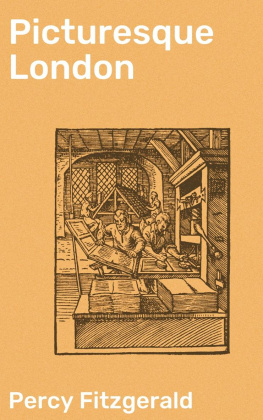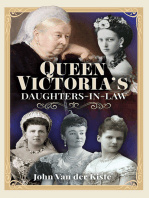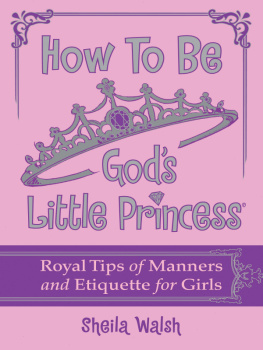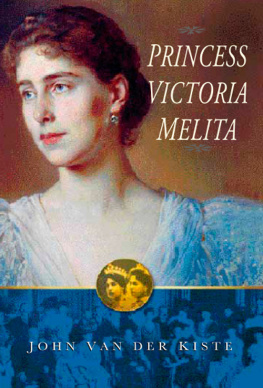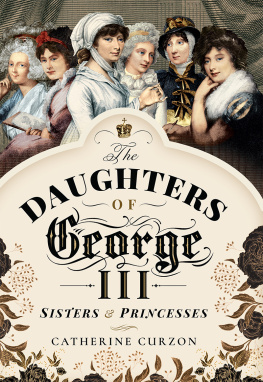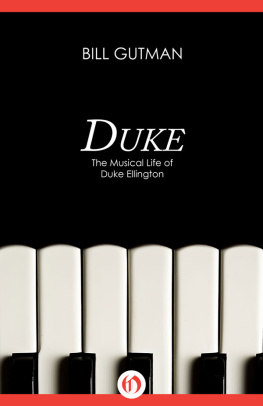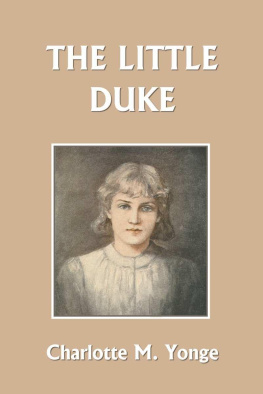THE ROYAL DUKES AND PRINCESSES OF THE FAMILY OF GEORGE III
A View of Court Life and Manners for Seventy Years, 17601830
VOLUME 2
PERCY FITZGERALD

This 2011 edition published by Barnes & Noble, Inc.
All rights reserved. No part of this publication may be reproduced, stored in a retrieval system, or transmitted, in any form or by any means, electronic, mechanical, photocopying, recording, or otherwise, without prior written permission from the publisher.
Barnes & Noble, Inc.
122 Fifth Avenue
New York, NY 10011
ISBN: 978-1-4114-5534-4
CONTENTS
PRINCESS CHARLOTTE
CHAPTER II
DUKE OF SUSSEX
CHAPTER I
DUKE OF YORK
CHAPTER I
CHAPTER II
DUKE OF KENT
CHAPTER I
DUKE OF CUMBERLAND
CHAPTER I
DUKES OF GLOUCESTER AND CAMBRIDGE
CHAPTER I
Book the Fifth(continued)
PRINCESS CHARLOTTE
CHAPTER II
PRINCESS CHARLOTTE'S MARRIAGE AND DEATH
P ASSING now from her childhood, we next see Princess Charlotte as an attractive young girl, wayward, easily led by kindness, and driven into obstinacy and rebellion by harsh treatment. It was thus she presented herself to an observer at her mother's house. This introduces us to a new epoch of her short life, when she was driven to act for herself and in hostility to her fatherwhile clinging as long as she could, or was allowed to do so, to her mother's cause.
"She is grown excessively, and has all the fulness of a person of five-and-twenty. She is neither graceful nor elegant, yet she has a peculiar air. She is above the middle height, extremely spread for her age; her bosom full, but finely shaped; her shoulders large, and her whole person voluptuous; but of a nature to become soon spoiled, and without much care and exercise she will shortly lose all beauty in fat and clumsiness. Her skin is white, but not a transparent whitelittle or no shade in her facebut her features are very fine. Their expression, together with that of her general demeanour, is noble. Her feet are rather small, and her hands and arms are finely moulded. She has a hesitation in her speech, amounting almost to a stammer, an additional proof, if any were wanting, of her being her father's own child; but in everything she is his very prototype. Her voice is flexible, its tones dulcet, except when she laughs, then it becomes too loud, but is never unmusical. She seems to wish to be admired more as a lovely woman than a queen. Yet she has lost quickness both of fancy and penetration, and would fain reign despotically, or I am much mistaken. I fear that she is capricious, self-willed, and obstinate. I think she is kind-hearted, clever, and enthusiastic. Her faults have evidently never been checked, nor her virtues fostered."
"The life," says Miss Knight, her new governess, "we led at Warwick House was exactly that of a child and her nurse. Dr. Short, her royal highness's sub-preceptor, a good sort of Devonshire man, with some classical knowledge, very little taste, an honest heart, but over-cautious temper, fearful of offending, used to come every morning and read English to her royal highness from eleven to twelve, at which hour he was succeeded by Mr. Sterkey, minister of the Swiss Church, who read French to her; a man of good manners for his station, and of a pliant disposition, ready to do anything not actually wicked, and, I believe, an excellent husband and father. As to Kper, the German preceptor, I could not get her to let him give his usual lessons. She thought him a spy. Mrs. Miles, her music mistress, used frequently to give her lessons in the evening; and she had instructions on the guitar, first from Ventura, a Venetian, who sang prettily, and afterwards from Vaccari, a scientific professor of music, and an excellent player on the violin, who taught Princess Charlotte the wild Spanish manner of playing, which the Miss Fitzroys also imitated very happily.
"The Bishop of Salisbury used to come three or four times a week, and 'do the important' as her royal highness's preceptor. I could not but see how narrow his views, how strong his prejudices, and how unequal his talents were to the charge with which he had been entrusted by the good old king, much against the prince's inclination. The bishop's great points were to arm Princess Charlotte against the encouragement of Popery and Whig principles (two evils which he seemed to think equally great), and to appear himself a man of consequence. She would good-naturedly allow him to be our cicerone to exhibitions, etc., and nothing could gratify him more, except a Garter ceremony, on which occasion he never failed to make his appearance at Warwick House in his dress as Chancellor of the Order.
"The bishop, having been preceptor to the Duke of Kent and living much at Windsor, where he was formerly a canon, had imbibed the bad style of manners belonging to that place, and as it was not grafted on any natural or acquired elegance, he was in that respect also unfit for his situation; added to which, his temper was hasty, and his vanity easily alarmed. His disputes with Lady de Clifford had been terrible, and he seemed now to bless himself that things went on so well and so quietly. Indeed, I thought it important they should do so, and the good Duchess of Leeds had no inclination to quarrel with anybody."
FROM PRINCESS AUGUSTA.
"M Y DEAREST L ADY H ARCOURT ,
"... I am sure you will rejoice in hearing what a satisfactory visit we had from dear Charlotte last week. Her confirmation passed off with the greatest propriety on her partfull conviction of what an awful ceremony and event it was. She took the sacrament with profound attention and a most proper impression; and, poor angel, she has confessed how wrong she was in having given credit to those wicked persons who had set her against her family."
The well-known scene, when she was led in tears from her father's dinner-table, because he abused the Whigs in her presence, was a touch that endeared her to the nation. Byron celebrated it in well-known lines. Her political feelings were most vehement, and she expounded them in a sort of manifesto, which accompanied a present of a bust of Mr. Fox, which she had sent to Lord Albemarle, father of her friend.
PRINCESS CHARLOTTE TO LORD ALBEMARLE.
Warwick House, January 17th, 1812.
M Y DEAR L ORD A LBEMARLE ,
I have been very much vexed at not being able to answer your letter immediately, which my wishes would have led me to do, but I delay no longer taking up my pen and expressing the emotions of satisfaction and pleasure I received on reading it. I cannot say how happy I feel that the bust has given you so much satisfaction. As knowing your affection to Mr. Fox (both in public and private), it struck me you would like to have it, and I was therefore particularly anxious for its success.
Nor shall I now stand in need of being reminded of his great name or great deeds while there are such able men, though few in number (comparatively speaking), who make it their study as well as their pride to follow as closely as possible the precepts of their late great leader. Which to admire most I am at a loss to know, for turn to either side one beholds so much that calls forth unqualified praise, that it would be a difficult task imposed. He has been one of those fewthose very fewwho have really had the good of their country at heart, and in view, not in words only, but who both in thought and deed acted for that alone; who by his uncorrupted integrity proved what a patriot and a statesman was, and united these two different characters (which ought never to have been divided). Of all his numerous deeds none are so to be cherished as that most cruel and disgraceful procedure (particularly to this country, which is called a free one) the


